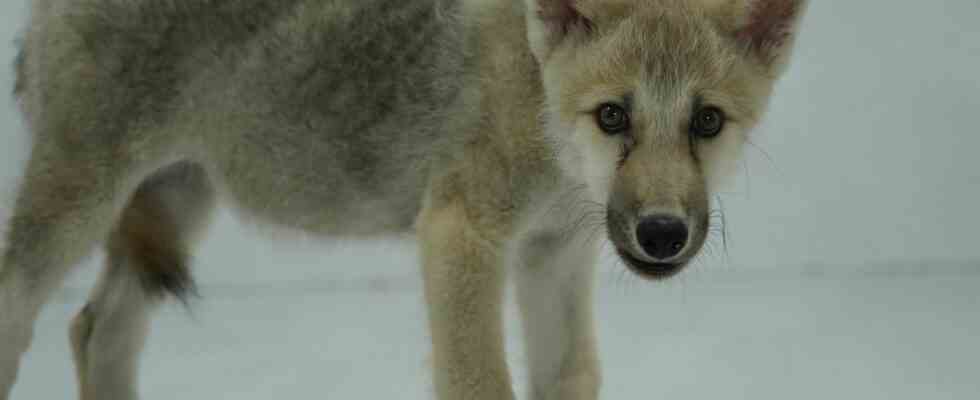The world’s first cloned arctic wolf is born –
that’s what a Chinese high-tech company announced.
The wolf pup saw the light of day on June 10, 2022 in Beijing.
The donor cells for the cloning come from the wild arctic wolf “Maya”.
The arctic wolf’s surrogate mother is a beagle.
“We decumulate and enucleate the female egg and then inject the donor cell into the space of the enucleated ovum. And the somatic nucleus and enucleated ovum develop into a new embryo, then we transfer activated cloned embryos to the beagle’s uterus, fertilize it, and the beagle gave birth to a healthy arctic wolf pup.” Zhao Jianping
But why clone a wolf?
The company justifies the special research as follows:
“In the past 50 years, the Living Planet Index has fallen by almost half, the total global population of animals of all species has fallen by 60%. In China, a large number of endangered animal species face extinction every day.” Sinogene in a press release
In 2012, the International Union for Conservation of Nature placed the arctic wolf on the Red List of Threatened Species.
In order to save the endangered animals, Sinogene and Harbin Polar Park will start research cooperation on arctic wolf cloning in 2020.
However, reactions to animal cloning have been divided.
Some scientists see animal cloning as an opportunity to protect biodiversity around the world.
So does the Chinese company Sinogene:
“Cloning technology provides a good entry point for protecting endangered wildlife, which makes a great contribution to protecting biodiversity.” He Zhengming
But there is also criticism.
The Animal Welfare Association criticizes the artificial intervention in natural reproduction:
“Hundreds of clones almost always have to die before an animal is born alive. And just like Dolly, the animals that initially survive are often sick and die early.” Tierschutzbund Deutschland
On July 5th, 1996 the cloned sheep Dolly was born in Scotland – the news of the first surviving clone went around the world.
Since then, a veritable market for animal cloning has emerged.
Livestock and breeding animals with desirable characteristics are copied, such as polo horses.
Pet owners also use the cloning method to resurrect their deceased loved ones again and again.
Human cloning, on the other hand, is prohibited in all countries of the world for ethical reasons.
However, a second cloned polar wolf is expected to be born in China in the near future.

